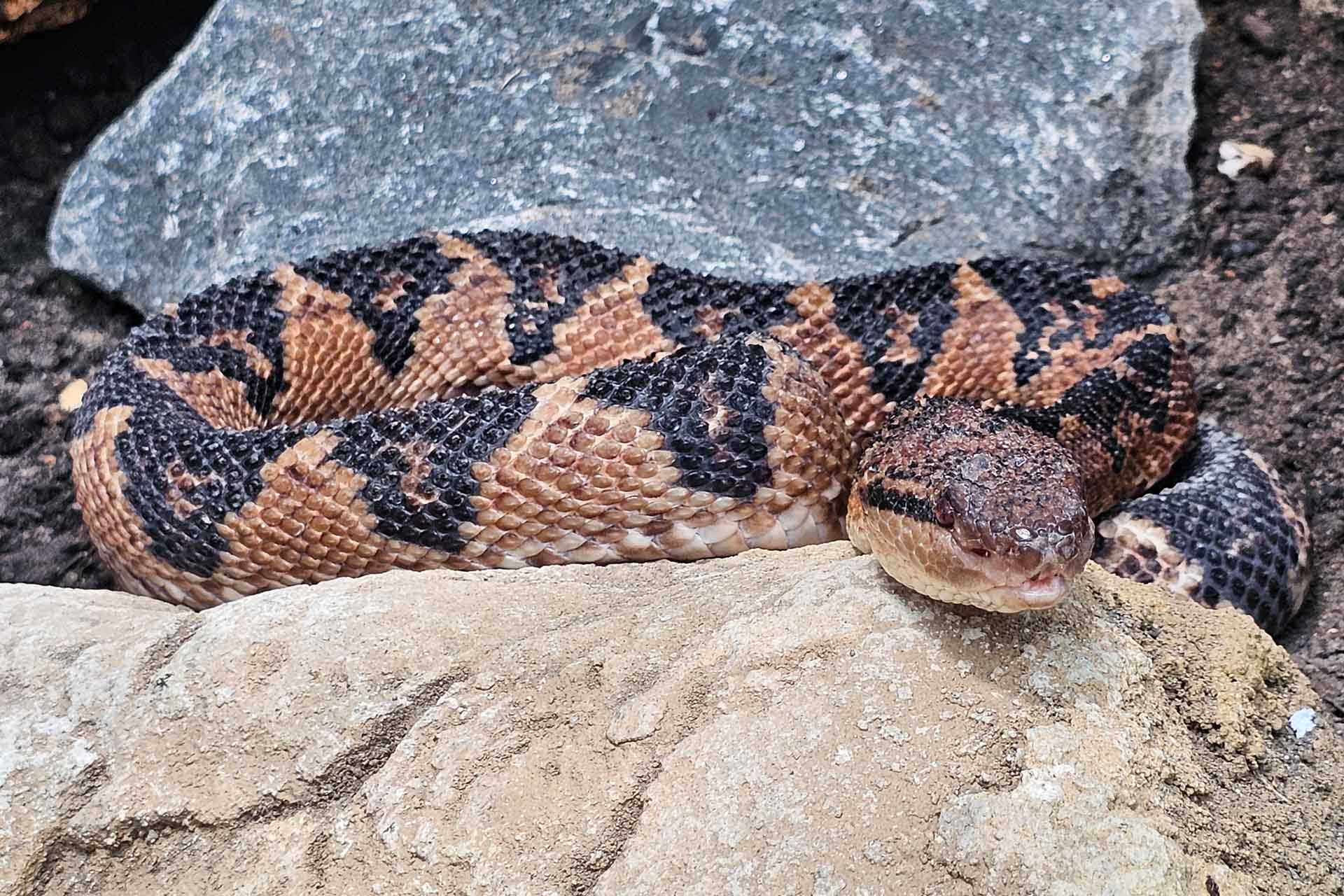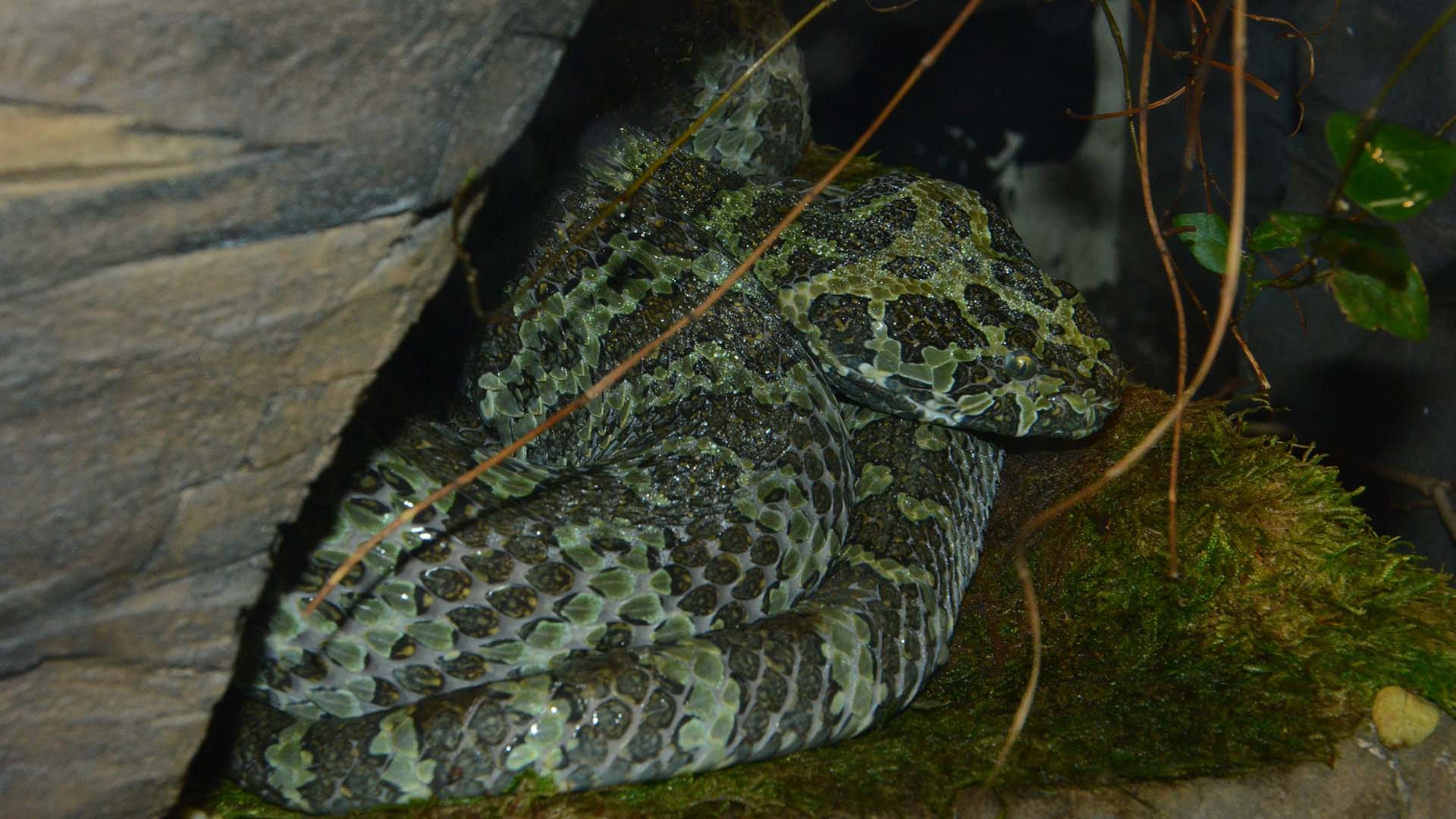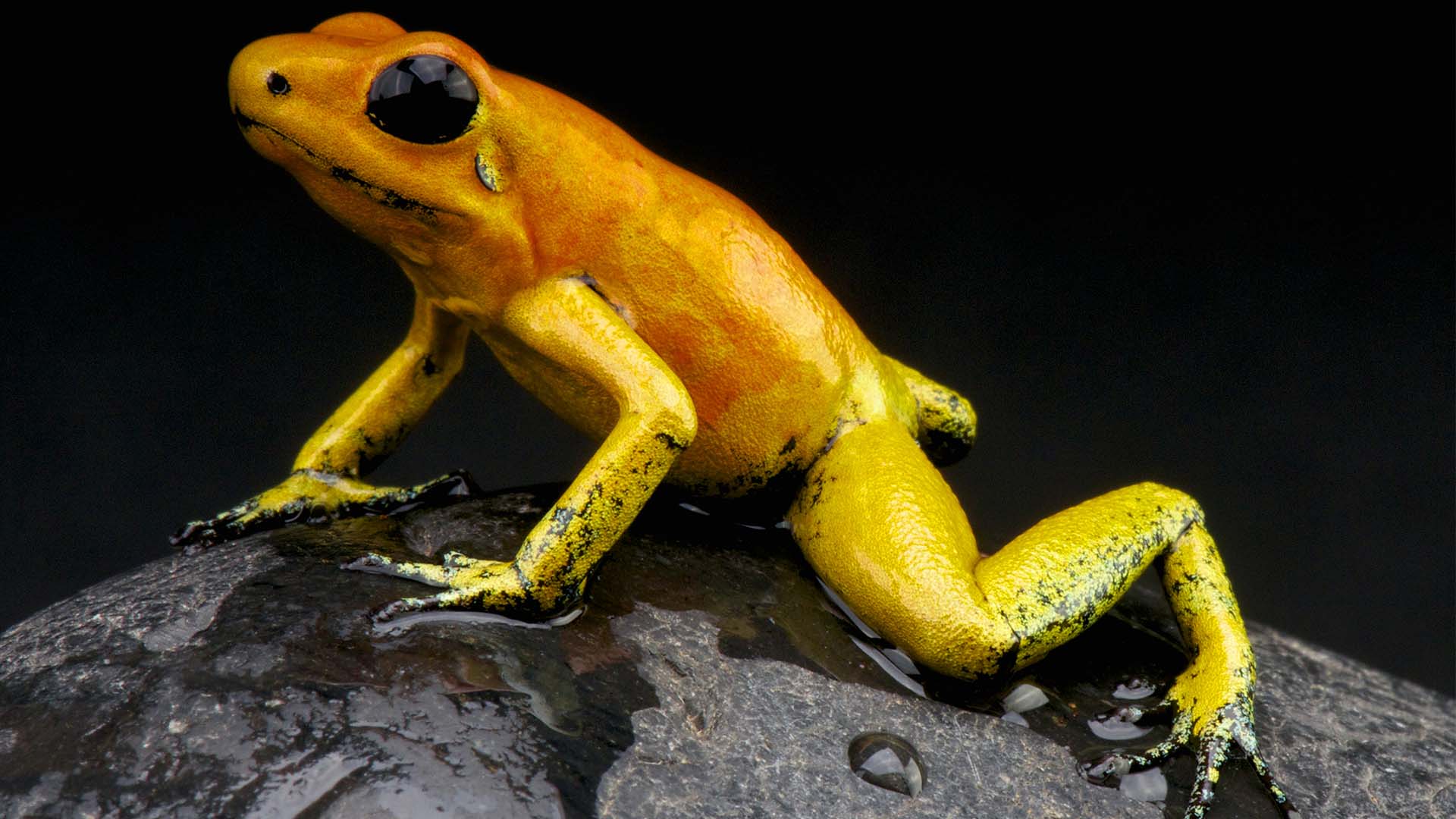
The keeping of dangerous exotic animals is a recurring topic of discussion, as was the case in the summer of 2025 following a bite incident involving a rattlesnake at a private animal keeper’s home. Although such incidents are fortunately extremely rare and bear no relation to the much more frequent accidents involving generally accepted pets or even road traffic, it is right to minimise potential dangers to the citizens as far as possible. However, other interests must be weighed up against this, such as animal welfare or the right to free personal development for people who are seriously, passionately and knowledgeably involved in keeping venomous snakes or other dangerous exotic animals. And – in our view particularly important – species protection aspects must also be taken into account. Last but not least, we must ask to what extent existing legal regulations actually serve the purpose of better protecting the people.
North Rhine-Westphalia with ban on husbandry
The keeping of dangerous animals is regulated at federal state level in Germany. Almost half of the federal states have no regulations at all, precisely because the issue is of little practical relevance. The other federal states have enacted quite different laws. In North Rhine-Westphalia, the ‘Law on the Protection of the Citizenry from highly venomous animals (GifttierG NRW)’ was introduced on 1 January 2021. It is the most restrictive of its kind, providing for a complete ban on the private keeping of many species classified as dangerous and only allowing existing stocks to be protected. The law expires on 31 December 2025, and discussions are currently underway at the political level as to the extent to which the regulation should be continued or amended.
Species protection also for dangerous animals
Citizen Conservation believes that private individuals should be allowed to keep dangerous animals, provided they comply with reasonable requirements, as there are numerous highly endangered species among these animals for which the expertise and husbandry capacities of private individuals can be of particular importance for their conservation. We therefore consider it irresponsible and contrary to the goals of comprehensive species conservation to ban private husbandry altogether. Apart from that, we doubt that the regulation in North Rhine-Westphalia serves the actual goal of protecting the population, and we also see resulting animal welfare problems. We have therefore submitted a statement to the responsible Ministry of Agriculture and Consumer Protection of North Rhine-Westphalia and hope that this will contribute to finding a more appropriate solution that, on the one hand, ensures maximum safety and, on the other hand, also takes into account the interests of species protection and committed, reliable keepers.

